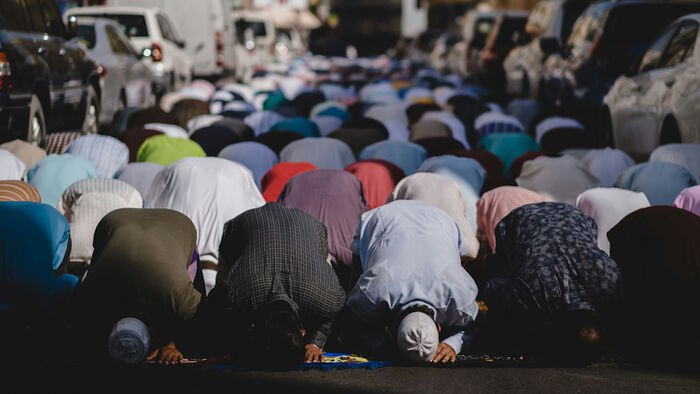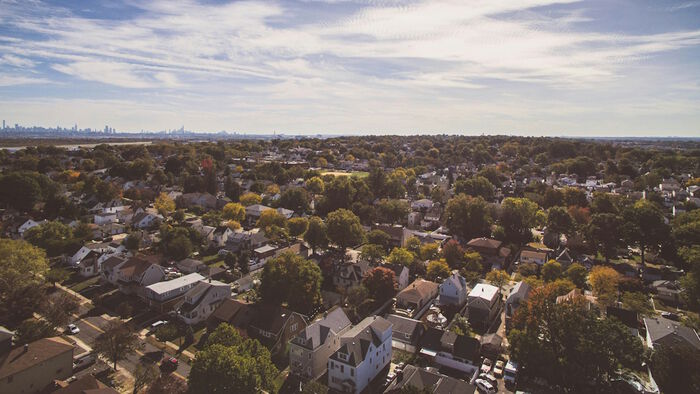Anti-government protests, police violence, leaked compromising footage, and doubts about the independence of the judiciary system were only some of the events preceding the 2021 Bulgarian parliamentary elections. Protestors both at home and abroad demanded the resignation of Boyko Borissov’s government and the chief prosecutor Ivan Geshev. The reasoning behind the protest wave is multi-layered and includes consistent, high-level corruption, the operationalisation of state institutions for political means, and the management of natural resources and public land. Voters headed to the polls on April 4th and decided on a rather fragmented 45th National Assembly. Six parties managed to pass the 4 percent electoral threshold and enter the parliament, and no single party gained a majority. This quickly resulted in a parliamentary deadlock and a country heading towards a second round of elections in July 2021, in which we can expect some important shifts in Bulgarian nationalist politics.
April Parliamentary Elections: Victory for Anti-Government Protest Movements
The Bulgarian political spectrum features several ultra-nationalist parties, none of which managed to obtain seats during the April elections. The poor performance of parties from the former, ultra-nationalist alliance United Patriots can be explained by their association with the established political elites, as they were the junior partners of former Prime Minister and GERB leader Boyko Borisov's 2017 coalition government. The United Patriots are a three-party alliance consisting of the right-wing, conservative IMRO (the Bulgarian Nationalist Movement), the NFSB (the National Front for the Salvation of Bulgaria) and the extreme right Attack, and have dissolved their union prior to the 2021 elections. While IMRO and Attack have decided to run solo, NFSB had found a new partner – the pharmaceutical oligarch, Veselin Mareshki, and his right-wing, populist Volya Party (who together received 2.4 percent of the votes).

However, it is important to note that these election results do not mean a decrease in nationalist representation in the Parliament. The new party of the TV host and entertainer Slavi Trifonov called “There is Such a People” or “There is Such a Nation” (Ima Takuv Narod, ITN) became the second-largest political party and first among Bulgarians abroad, with 17.7 percent of the vote. ITN relies heavily on soft nationalist rhetoric and banal, national identity representations communicated through a variety of media formats. The discourses related to national pride and belonging have appeal to the patriotism-prone electorate and might explain the decrease of votes for nationalist parties such as IMRO, NFSB, or Attack.
United Patriots No More… Or Bulgarian Patriots 2.0?
A new far-right nationalist alliance called Bulgarian Patriots has been agreed upon at the end of May 2021 and can potentially consolidate the scattered votes in the upcoming July elections. Bulgarian Patriots consists of three political parties: the IMRO, NFSB, and Volya. The April elections demonstrated that none of these parties have the potential to gather sufficient votes as a political project on their own. This made them consider a diverse range of partnerships within the nationalist, right-wing conservative circles by overcoming interpersonal differences among the parties’ leadership. This is further demonstrated by the decision of IMRO, NFSB, and Volya not to include any of their foremen on lists during the July elections (respectively Krasimir Karakachanov, Valeri Simeonov, and Veselin Mareshki).
As for the extreme-right Attack, its appeal as a political project remains rather limited as they managed to secure only 0.5% of the votes. Attack has decided not to join any alliance in the upcoming elections, which means they might be left outside the National Assembly after July.
The Peculiar Case of Revival Party and Diaspora Nationalism
The most peculiar case in the Bulgarian nationalist landscape from April’s elections was the nationalist, Eurosceptic Revival Party (Vazrazhdane). They self-identify neither as left, nor right but as “nationally responsible”. However, many of their views such as exclusionary nationalism, focus on national culture, and traditional family values align with far-right ideology. Despite being absent from most of the forecast, Revival gathered 2.5% of the votes, but 7.4% of the diaspora vote. These results demonstrated almost a double increase in comparison with their 2017 performance when they received 1.1% of the vote.
Revival is among the top 5 parties among Bulgarians abroad. For some diaspora groups, Revival comes second (in Italy) and third (in the United Kingdom, Austria, Norway). Similar to ITN, Revival is one of the few parties which has sections paying particular attention to Bulgarians abroad in their party manifesto and programme. Revival utilises alarmistic discourse outlining a demographic crisis, low birth rates, brain drain, and low engagement with Bulgarian diaspora and minorities abroad as a major threat to the preservation of the Bulgarian ethnic majority population. Their social media channels (mainly YouTube and Facebook) are well developed and facilitate engagement with audiences abroad.
Specific discursive lines of the party might also engage a wider spectrum of voters. Revival's Russophile positions, anti-LGBT views, and conservatism come as an anti-establishment alternative to Attack (who were part of the previous coalition government). The Revival party programme outlines a focus on national interests, an urge for return of sovereignty long lost, and foreign policy “contrasting the propaganda that the world is reduced to the EU and the US”. Thus, it has the potential to appeal to voters with more conservative and/or Eurosceptic affiliations as well as diaspora groups dissatisfied with the situation abroad. Their Declaration for Independence of the Bulgarian Nation includes environmental aspects such as nature preservation, domestic food security, and a focus on water and air pollution. These narratives might also appeal to more socially engaged voters, although there is no sufficient research on Revival’s electorate to know with certainty. However, in the summer elections, their electoral performance will be one more aspect to keep an eye on, although their entry into the upcoming Parliament remains questionable due to the four-percent threshold and the consolidation of the Bulgarian Patriots.
There is Such a Nation … Or Slavi’s Banal Forms of Nationalism
Compared to its ultra-nationalist counterparts, ITN should be regarded as a long-term political and cultural project based on more banal forms of nationalism. Unlike the Bulgarian Patriots, Attack, or Revival, ITN presents itself as more of a catch-all, populist party referring to the virtues of people, uniqueness of the nation, its character, and national culture. Thus, ITN comes a step closer to the populist-nationalist parties and their leaders on the rise in Europe and the Americas. However, ITN’s refusal to participate in more traditional, face-to-face campaigning, speeches, and debates limits the possibility to analyse its ideology and tactics. Therefore, it is crucial to keep assessing their discourses and nationalist rhetoric after the July 2021 elections.
Slavi Trifonov and his ITN party have thus far utilised popular culture to raise patriotic sentiments and to connect with compatriots abroad and at home. For instance, Trifonov has organised large-scale concerts in the United Kingdom (such as at 2018 O2 Arena London; 2016 SSE Arena – Wembley) where the national flag appeared and the national anthem, “White Cloud” and/or “My country, My Bulgaria” were performed, all emotionally-loaded songs for Bulgarians abroad. In the UK, ITN gathered the majority of the votes in April – 43.5%.
A similar strategy was applied domestically. The ITN interacted with their electorate mainly through digital, social media platforms, and their own 7/8 Television channel. In 2017, Slavi Trifonov and the musicians from his team, Ku-Ku band held a concert spectacle at Arena Armeets Hall called “There is such a Nation” which later became the name of their party. The concert started with a quote by Alphonse de Lamartine: “Bulgarians. This patriotic nation, they cannot be slaves. They are created by nature itself to be free.” The spectacle had a large symbolic element referencing elements of Bulgarian national identity, history, national folklore, music, and dance. Thus, ITN utilises diverse media formats to communicate soft nationalism and its banal forms. Alongside, their long history in the Bulgarian entertainment industry, ITN’s storytelling makes their message personalised and psychologically loaded for various types of voters.
The Rise of Far-Right Nationalism?
The fact that the United Patriots did not enter the National Assembly after the April 2021 elections does not necessarily mean that Bulgarian nationalist parties and representations are in decline. There is a rise of more right-wing, conservative parties and alliances at the expense of the left. Thus, conservatism, traditional values, a market economy, and nation-centric discourses are expanding their influence. Several smaller ultra-nationalist parties such as NFSB, IMRO, Revival, KOD, and Attack are circulating in the Bulgarian political space and consolidating their forces into alliances before the elections on 11th July. However, the most influential party relying on nation-centric and cultural strategy remains Slavi Trifonov’s ITN. They emphasize a more banal, soft nationalism and a catch-all strategy, unlike the more exclusionary forms promoted by the ultra-nationalists. Whether ITN will pursue a more nationalist agenda or not is still unclear due to their limited public engagements and recent establishment.
Historically, the political and media personalisation are key elements impacting voters’ behaviour in Bulgaria, who tend to sympathise with masculine, man-of-the-people personages. Both the former Prime Minister Boyko Borissov and the current leader of ITN Slavi Trifonov represent such characteristics, and will clash in July's elections. The struggle of the conservative populist, and former ruling party GERB to hold on to power makes their former ultra-nationalist coalition partners a convenient source of support. If the post-July elections lead to yet another far-right conservative coalition government, this might further enhance issues concerning rule of law, freedom of speech, and the political participation of Bulgarian diaspora communities abroad. The former coalition government between GERB and the United Patriots, their involvement in corruption allegations, and declining freedom were all matters that provoked all anti-establishment protests and predominant oppositional votes both home and abroad. The upcoming second round of elections will offer a glimpse into the changing political landscape in Bulgaria. Will the current government hold onto power with some help from far-right nationalists, or will ITN establish itself as a real political force? These are some of the questions the near future will answer.
.jpg)

.jpg?alt=listing)


